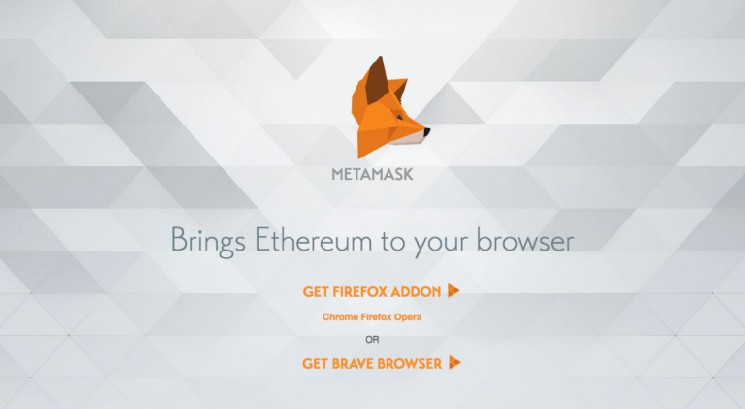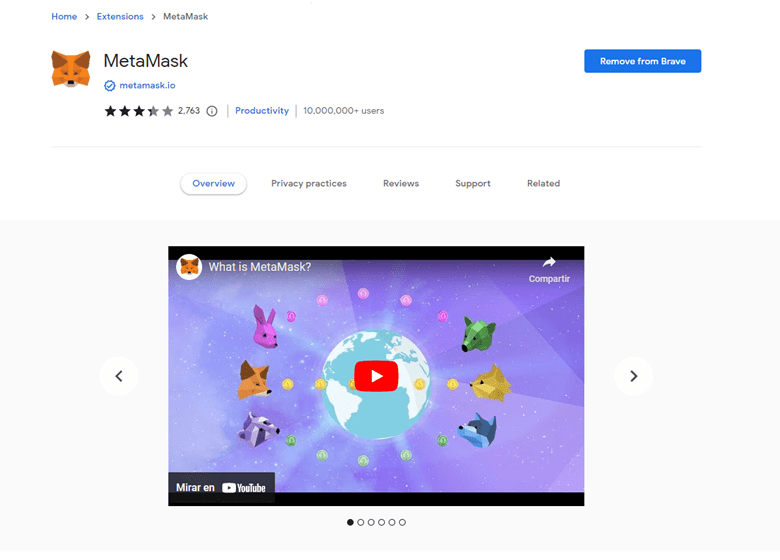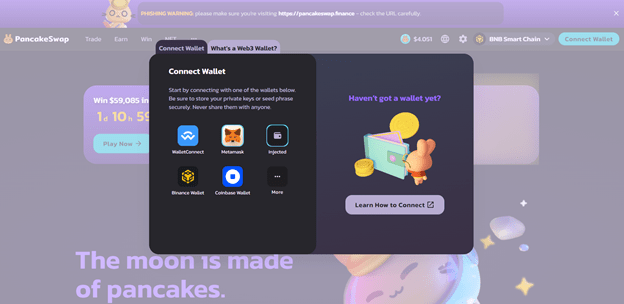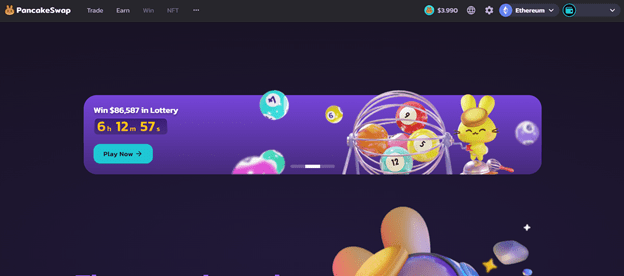How to Connect MetaMask to PancakeSwap

MetaMask and PancakeSwap are two well-known blockchain applications in the overall cryptocurrency sphere. The former out as an efficient, simple, yet versatile crypto wallet. The latter is a decentralized exchange based on the BNB Chain that facilitates liquidity for numerous cryptocurrencies and some interesting features for traders with a high appetite for risk.
What is MetaMask?
MetaMask is an Ethereum wallet available for iOS and Android devices and can be installed as a browser extension for Firefox, Google Chrome, Edge, and Opera. The app provides users access to over 2000 decentralized applications on multiple networks, including Ethereum, Avalanche, BNB Chain, and Arbitrum.
What is PancakeSwap?
PancakeSwap is an automated market maker (AMM) built on the BNB Chain (formerly Binacnce Smart Chain) —basically the BNB Chain version of SushiSwap. The protocol allows users to swap and trade various cryptocurrencies and stablecoins and the ability to inject liquidity into liquidity pools; a DeFi practice called yield farming.
Since there is a lot of on-chain activity taking place in PancakeSwap, users will always try to choose reliable wallets to send their funds, and MetaMask has been one of the go-to wallets for users who want their assets outside of exchanges or to transfer NFTs (Non-Fungible Tokens) via an NFT marketplace.
How To Connect MetaMask to PancakeSwap
Follow the next steps to connect your MetaMask wallet to PancakeSwap successfully. If you don’t have MetaMask, you need to download it as an extension for your browser. Follow the required steps, and don’t forget to write down your seed phrase. If you lose your seed phrase, you won’t be able to recover your wallet.
To safely download MetaMask’s browser extension, be sure to use the wallet’s official website to find the right version for your browser.

Once you have installed MetaMask and created or imported a wallet, head on over to PancakeSwap. Be extremely careful to avoid any phishing links and ensure you’re on the right website once you get there by checking the URL.
- On PancakeSwap, click on the Connect Wallet tab.

- Click on MetaMask. Click more if you want to see the handful of supported wallets for future connections with other wallets like TrustWallet.
- The MetaMask pop-up window will prompt you to unlock your wallet and sign the connection petition.
- By default, your MetaMask wallet is set for the Ethereum network. If you don’t have BNB Chain, simply click on Settings and choose BNB Chain.
- Once done, you’ll be back at the PancakeSwap main dashboard.
Your MetaMask wallet will appear at the top right of the PancakeSwap website. That means you have successfully connected your wallet to the DEX.

As you can see, the process is quite straightforward and only takes a few minutes of your time. Keep in mind that to interact with the BNB Chain you will need to pay transaction fees on the network’s native currency, BNB.
FAQ
What other wallets does PancakeSwap support? Can I connect multiple wallets?
You can only connect one wallet at a time. To disconnect MetaMask, click on the Wallet tab and choose Disconnect. You can choose up to 13 wallets on PancakeSwap, including Opera Wallet, Trust Wallet, Wallet Connect, etc.
What is yield farming?
Yield farming is a high-risk DeFi practice in which users deposit their cryptocurrency into a liquidity pool from a decentralised exchange to earn interest and rewards in the form of more cryptocurrencies. Users are essentially pooling their funds so other users can use them within the platform.
What’s different from SushiSwap compared PancakeSwap?
While both protocols are quite similar, the main difference is that PancakeSwap has lower barriers to entry —economically speaking, since fees are lower in the BNB Chain compared to Ethereum. Keep in mind SushiSwap and rival AMM platforms like Uniswap now support various blockchains.
What is an Automated Market Maker?
AMMs are software mechanisms that use a mathematical formula to quote prices between two assets in a decentralized exchange. They are the counterparties of order books, which match buyers and sellers in a centralised exchange (CEX).






 Bitcoin
Bitcoin  Ethereum
Ethereum  Tether
Tether  USDC
USDC  TRON
TRON  Dogecoin
Dogecoin  Cardano
Cardano  Monero
Monero  Bitcoin Cash
Bitcoin Cash  Chainlink
Chainlink  LEO Token
LEO Token  Stellar
Stellar  Zcash
Zcash  Litecoin
Litecoin  Hedera
Hedera  Dai
Dai  Cronos
Cronos  OKB
OKB  Tether Gold
Tether Gold  Ethereum Classic
Ethereum Classic  KuCoin
KuCoin  Cosmos Hub
Cosmos Hub  Gate
Gate  Dash
Dash  Algorand
Algorand  VeChain
VeChain  Stacks
Stacks  Tezos
Tezos  TrueUSD
TrueUSD  Decred
Decred  IOTA
IOTA  Theta Network
Theta Network  Basic Attention
Basic Attention  NEO
NEO  Synthetix
Synthetix  Qtum
Qtum  0x Protocol
0x Protocol  Ravencoin
Ravencoin  Zilliqa
Zilliqa  DigiByte
DigiByte  Nano
Nano  Siacoin
Siacoin  Numeraire
Numeraire  Waves
Waves  Ontology
Ontology  Status
Status  Enjin Coin
Enjin Coin  BUSD
BUSD  Hive
Hive  Pax Dollar
Pax Dollar  Lisk
Lisk  Steem
Steem  Huobi
Huobi  OMG Network
OMG Network  Bitcoin Gold
Bitcoin Gold  NEM
NEM  Augur
Augur